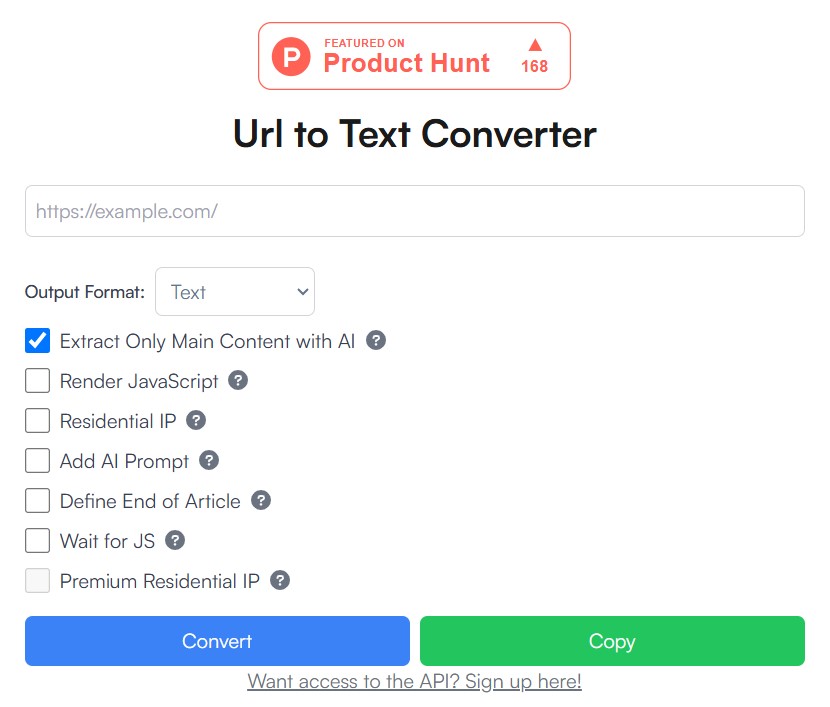Accessing information online often comes with distractions like ads, menus, and unnecessary visuals. A URL to text converter provides a way to extract clean and focused text, making content easier to use and analyze.
This tool is valuable for researchers, students, developers, and professionals who need streamlined access to information. By simplifying workflows and improving efficiency, it has become an essential resource for those working with web-based content. This guide will explain what it is, how it works, and why it’s beneficial.
What Is a URL to Text Converter?
A URL to text converter is a tool that extracts plain text from a webpage by processing its URL. It removes unnecessary elements such as advertisements, sidebars, and navigation menus, leaving behind only the essential content. This makes the information easier to read, analyze, and use for various purposes. Here are the key functionalities:
- Streamlining Content: Strips away distractions like ads, pop-ups, and other non-essential elements.
- Clean and Structured Output: Focuses on delivering well-organized and readable text.
- Multiple Format Support: Offers plain text, Markdown, or HTML options for convenience.
- Dynamic Content Handling: Processes content even on websites with JavaScript-based elements.
Applications Across Industries
The versatility of a URL to text converter makes it a valuable tool for a wide range of industries. Its ability to extract clean and structured content has numerous practical applications that simplify workflows and enhance productivity.
1. Education and Academia
In education, students and educators often need to access reliable content quickly. A URL to text converter helps:
- Extract key points from online articles or research papers without distractions.
- Create study materials by compiling relevant information from various sources.
- Facilitate offline reading and annotations for assignments and projects.
2. Journalism and Media
Journalists require accurate and distraction-free information to create impactful stories. This tool enables:
- Quick extraction of clean text from news sources or reports.
- Easy curation of content for analysis and comparison.
- Compilation of data for investigative journalism, free from unnecessary design elements.
3. Business and Marketing
Businesses depend on staying updated with market trends and competitor activities. A URL to text converter streamlines this by:
- Allowing quick extraction and analysis of competitors’ web content.
- Helping teams monitor website updates and changes effectively. For businesses seeking an automated approach, tools that provide automated content monitoring can complement URL to text conversion by keeping you informed of updates without manual effort. Learn more about how this works in our guide on automated content monitoring.
4. Content Creation and Curation
For bloggers, writers, and digital marketers, a URL to text converter simplifies the process of managing and repurposing content. It can help extract reference material for creating new articles or repurpose existing work for other platforms. For instance, if you publish content on Medium, using tools like a URL to text converter makes it easier to back up your articles for future reference.
5. Research and Development
Researchers need precise and relevant information for their studies. A URL to text converter aids in:
- Extracting raw data or textual content for analysis and reports.
- Cleaning datasets for machine learning and natural language processing applications.
- Gathering insights from multiple online sources without manual formatting.
6. Legal and Compliance
Legal professionals and compliance officers often review extensive online documents. A URL to text converter helps:
- Extract readable content from terms and conditions or regulatory pages.
- Simplify analysis of case studies or legal documents found online.
- Prepare summaries or briefs without distractions.
7. Technology and Software Development
For developers, URL to text converters play a vital role in web scraping, data extraction, and building scalable solutions. These tools simplify retrieving structured content for use in APIs and other applications. Moreover, developers and software engineers use URL to text converters to generate clean datasets for analysis and testing.
Conclusion
The ability to extract and work with clean and readable text is invaluable in a world where information is often buried beneath distractions. A URL to text converter offers a practical solution for anyone seeking clarity and efficiency in accessing online content.
Its relevance continues to grow as more professionals and industries recognize the importance of streamlined workflows and accessible information. By integrating such tools into daily practices, users can unlock new possibilities for productivity and innovation.

